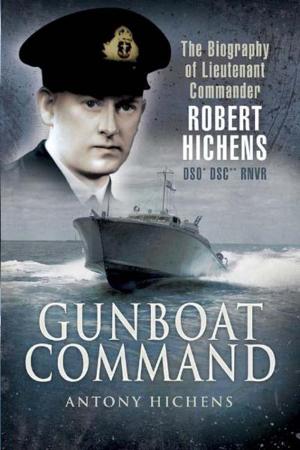The Defeat of the Zeppelins
Zeppelin Raids and Anti-Airship Operations 1916-18
Nonfiction, Reference & Language, Transportation, Aviation, History, Military, World War I| Author: | Mick Powis | ISBN: | 9781526701497 |
| Publisher: | Pen and Sword | Publication: | October 30, 2017 |
| Imprint: | Pen and Sword Aviation | Language: | English |
| Author: | Mick Powis |
| ISBN: | 9781526701497 |
| Publisher: | Pen and Sword |
| Publication: | October 30, 2017 |
| Imprint: | Pen and Sword Aviation |
| Language: | English |
Mick Powis describes the novel threat posed to the British war effort by the raids of German airships, or Zeppelins, and the struggle to develop effective defenses against them. Despite their size and relatively slow speed, the Zeppelins were hard to locate and destroy at first. They could fly higher than existing fighters and the early raids benefited from a lack of coordination between British services. The development of radio, better aircraft, incendiary ammunition, and, above all, a more coordinated defensive policy, gradually allowed the British to inflict heavy losses on the Zeppelins. The innovative use of seaplanes and planes launched from aircraft carriers allowed the Zeppelins to be intercepted before they reached Britain and to strike back with raids on the Zeppelin sheds. July 1918 saw the RAF and Royal Navy cooperate to destroy two Zeppelins in their base at Tondern (the first attack by aircraft launched from a carrier deck). The last Zeppelin raid on England came in August 1918 and resulted in the destruction of Zeppelin L70 and the death of Peter Strasser, Commander of the Imperial German Navy’s Zeppelin force.
Mick Powis describes the novel threat posed to the British war effort by the raids of German airships, or Zeppelins, and the struggle to develop effective defenses against them. Despite their size and relatively slow speed, the Zeppelins were hard to locate and destroy at first. They could fly higher than existing fighters and the early raids benefited from a lack of coordination between British services. The development of radio, better aircraft, incendiary ammunition, and, above all, a more coordinated defensive policy, gradually allowed the British to inflict heavy losses on the Zeppelins. The innovative use of seaplanes and planes launched from aircraft carriers allowed the Zeppelins to be intercepted before they reached Britain and to strike back with raids on the Zeppelin sheds. July 1918 saw the RAF and Royal Navy cooperate to destroy two Zeppelins in their base at Tondern (the first attack by aircraft launched from a carrier deck). The last Zeppelin raid on England came in August 1918 and resulted in the destruction of Zeppelin L70 and the death of Peter Strasser, Commander of the Imperial German Navy’s Zeppelin force.















